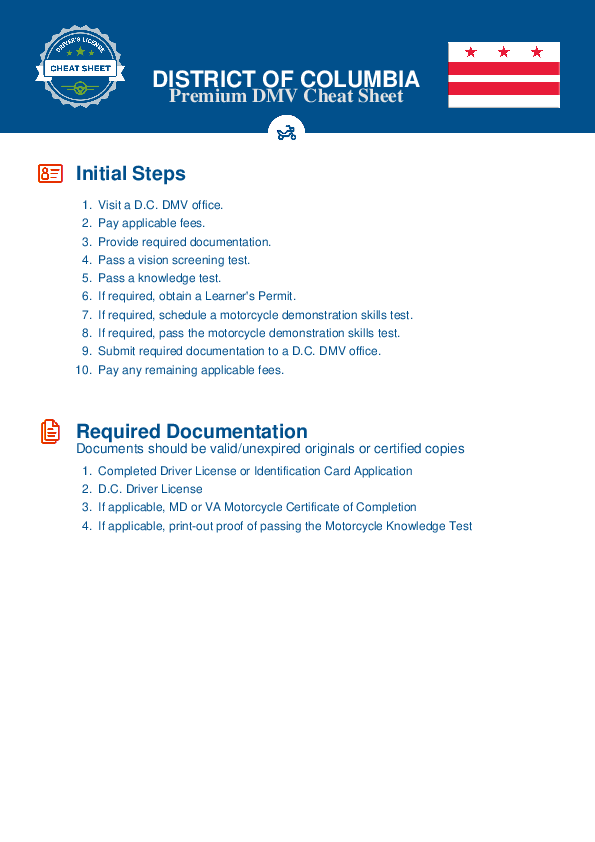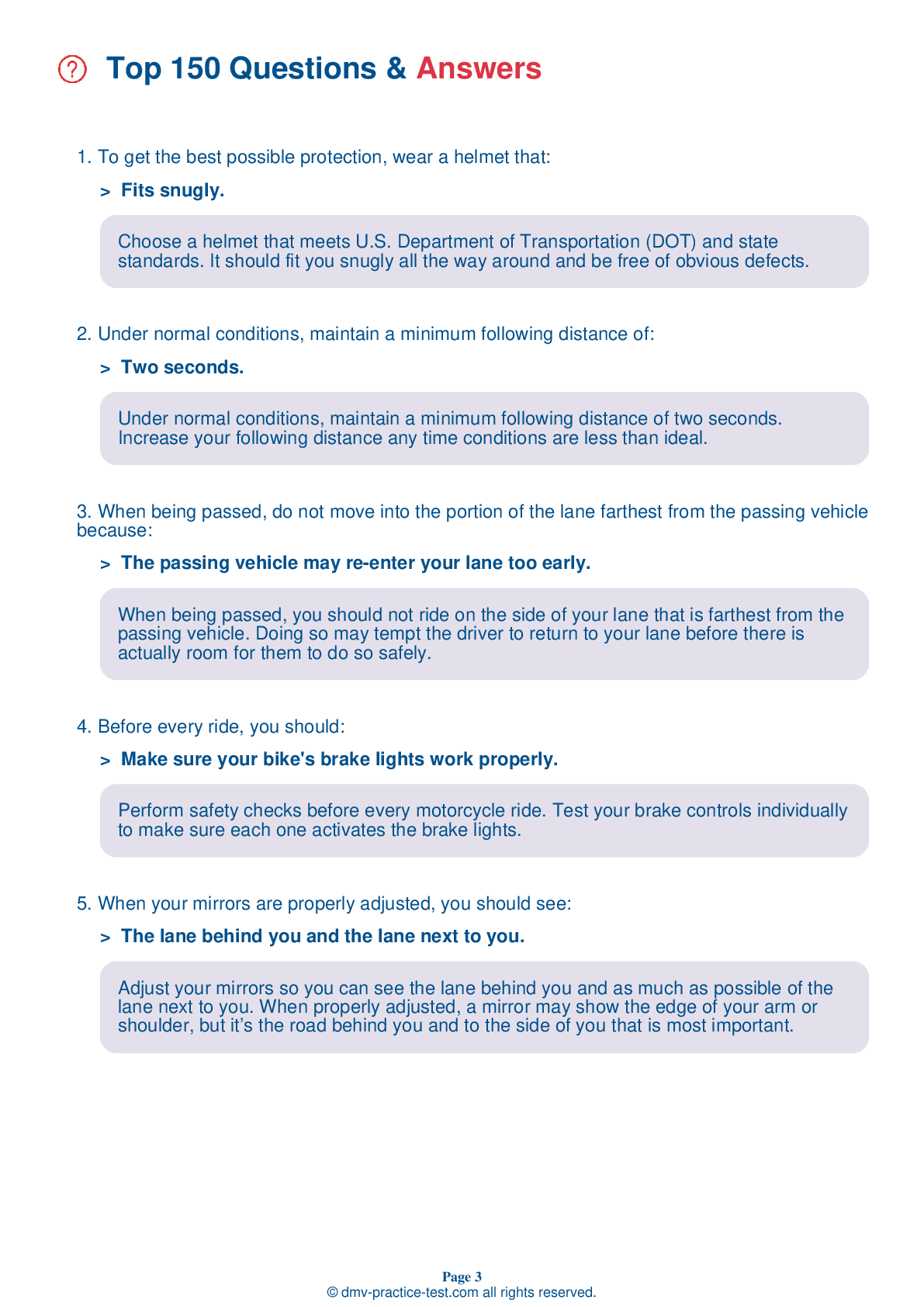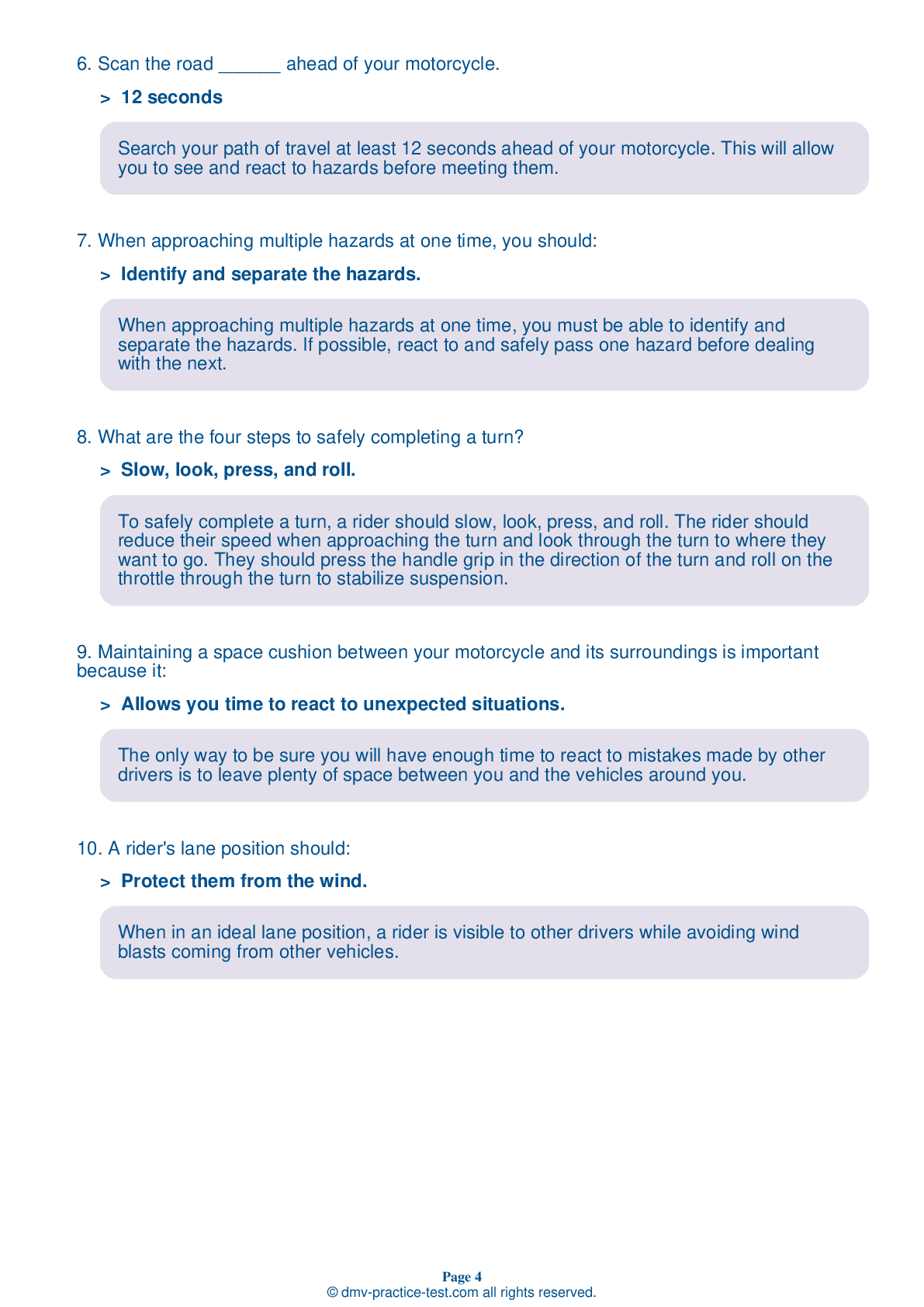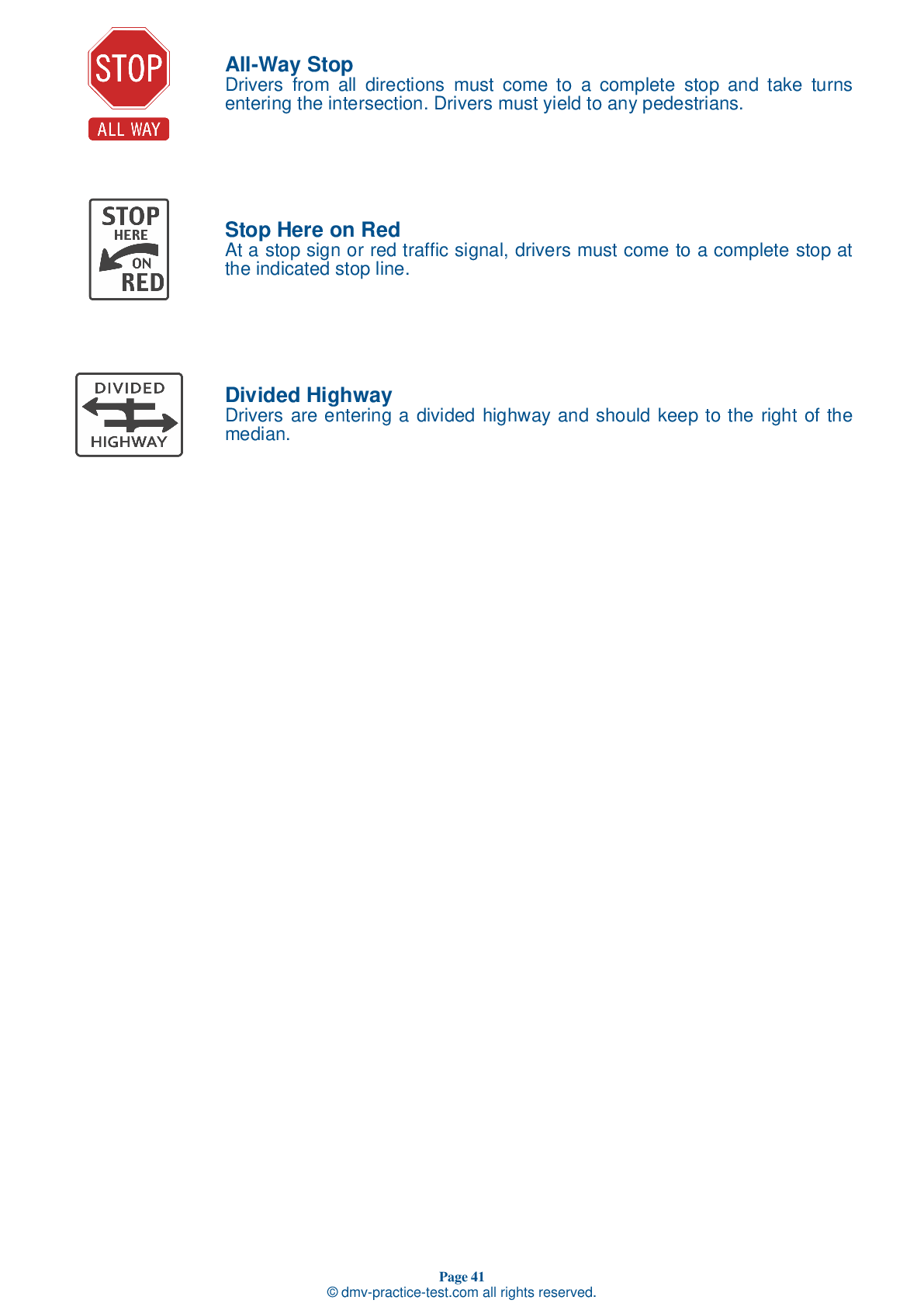Motorcycle Test | License DC 2026 | FREE Online Practice! #2
Take this FREE motorcycle test (license in DC 2026) to check your knowledge of the road rules. To improve your results, download a motorcycle handbook online, study theory, and practice for free on our website. Still worried about how to get a motorcycle license in District Of Columbia in 2026? Check our website for more sample tests, train as much as possible, and boost your grades!
1 . Making eye contact with other drivers:
You should never take eye contact as a guarantee that a driver will properly yield to you. It is not uncommon for drivers to look directly at a motorcyclist but fail to register that they are there.
2 . Which of the following is not an example of a slippery surface?
A number of surfaces can provide poor traction for tires. Wet pavement; roads covered in loose gravel or sand; muddy, snowy, or icy areas; painted lane markings; and metal covers and plates in the road can be more hazardous for a motorcyclist than dry pavement.
3 . In addition to hazardous road conditions, riders should search for:
Riders should continually scan ahead of, to the sides of, and behind their motorcycles. They should look for hazardous road conditions as well as traffic that could become hazardous.
4 . Which of the following is a good color to wear to be seen?
Orange, red, yellow, or green clothing can make you easier to see while riding a motorcycle. Wear brightly-colored clothing no matter what time of day you are riding.
5 . A person with a blood alcohol concentration (BAC) of ______ or more is considered legally intoxicated.
For people age 21 and above, a blood alcohol concentration (BAC) of 0.08 percent or higher is considered legally intoxicated. It is both illegal and dangerous to operate a motor vehicle while legally intoxicated.
6 . When a group of riders is passing another vehicle on a two-lane road, the riders should:
On a two-lane road, a group of motorcyclists should pass one at a time. Each motorcyclist should complete the pass before another begins to pass.
See the exact questions that will be on the 2026 District Of Columbia DMV exam.
99.2% of people who use the cheat sheet pass the FIRST TIME
Jeneen was tired of paying $5/gallon. She got herself a scooter that required the motorcycle license. She studyed the motorcycle test cheat sheet and passed her test the next day!
Christopher tells us how he knew nothing prior to obtaining the motorcycle study guide, and he only got one question wrong because he clicked on the wrong answer by mistake.



